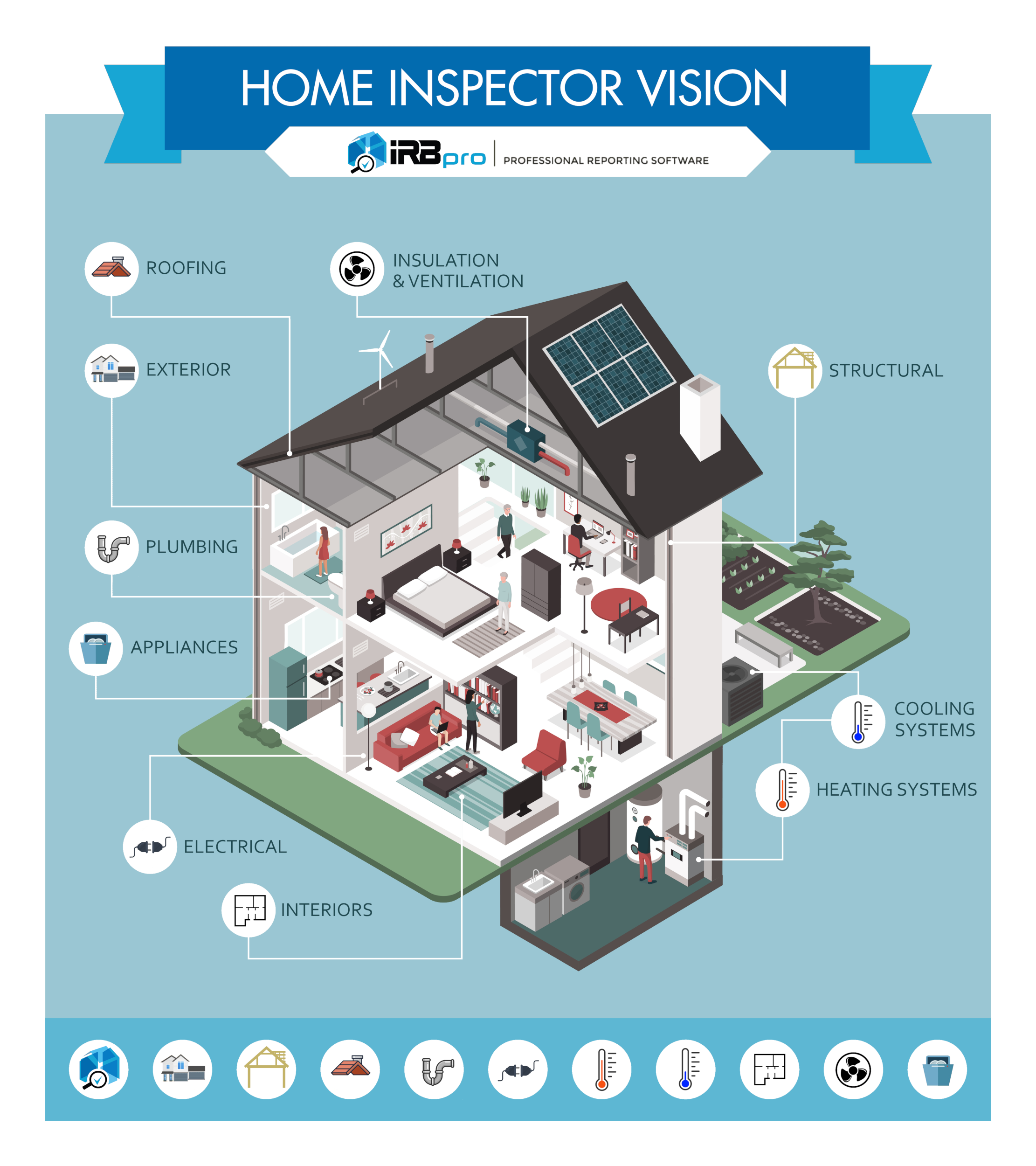RESIDENTIAL HOME INSPECTION
What do we inspect?

APPLIANCES
A home inspector will inspect typical home appliances installed permanently in the home including ovens, ranges, microwaves, garbage disposals, and dishwashers.
COOLING & HEATING SYSTEMS
A home inspector will inspect your home heating & cooling systems including heating & cooling equipment, distribution systems, and storage systems.
ELECTRICAL
A home inspector will inspect your home electrical service including your main and distribution panels, branch circuits, fixtures, receptacles, smoke and carbon monoxide detectors.
EXTERIOR
A home inspector will inspect exterior windows, doors, walks, patios, vegetation, grading, wall cladding, flashings, trim, driveways, decks, and porches.
INSULATION & VENTILATION
A home inspector will inspect all accessible areas containing insulation and ventilation equipment including attic and crawl space areas.
INTERIORS
A home inspector will inspect all interior areas of your home including bedrooms, bathrooms, garages, attic & basement areas, fireplaces, and all other rooms.
PLUMBING
A home inspector will inspect your home main water supply including drain and waste piping, water heating equipment, and water distribution systems.
ROOFING
A home inspector will inspect roofing systems including flashing, drainage systems, skylights, chimneys, and roof covering materials.
STRUCTURAL
A home inspector will inspect floor systems, walls, ceilings, roofing structures, and your home foundation.
Inspections adhere to the North Carolina Home Inspector Licensure Board (NCHILB) Standards of Practice (SOP) and Code of Ethics (COE). Specifics can be found in the North Carolina General Statutes, Chapter 143, Article 9F - NC Home Inspector Licensure Act.